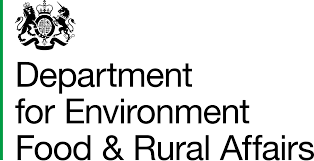The press release issued by the Department for Environment, Food and Rural Affairs on 7 February 2024.
The government has announced the recipients of awards to improve lowland peat soils, including over £1.3m to projects across the North.
Peatlands are our largest terrestrial carbon store, however, as a result of centuries of drainage for agriculture, just 1% of England’s lowland peatlands remain in a near-natural state, and these drained peatlands account for 88% of all greenhouse gas emissions from England’s peat.
The projects will use government funding to improve the management of water on lowland peat and enhance understanding of climate change impacts and flood risk.
The projects in the North are:
- Lancashire Wildlife Trust were awarded £327,500 for a wetter farming trial and a feasibility study.
- Groundwork Cheshire, Lancashire and Merseyside were awarded £100,200 to investigate the feasibility of re-wetting areas of Lindow Moss.
- National Trust, Cheshire, were awarded £65,000 to produce a wider costed water-management plan, including undertaking detailed surveys to understand the extent and nature of the peat soils.
- Mersey Rivers Trust were awarded £55,000 to develop knowledge of the current condition of the lowland peat soils and explore whether wetter farming is a viable option.
- Yorkshire Wildlife Trust were awarded £342,000 for a project focused on the technical and economic implications of raising water levels on 7 farms, enabling farmers to make informed decisions about long-term land use.
- Reedness and Swinefleet Internal Drainage Board were awarded £264,000 for a connectivity and hydrological study at the Thorne, Crowle & Goole Moor Peatlands to ensure cross-beneficial needs for both peat restoration and flood management.
- Vale of Pickering Internal Drainage Board were awarded £160,000 to develop a better understanding of the River Hertford catchment in terms of water management, with a view to how IDB operations need to change if re-wetting peatlands were pursued. The four successful projects in the north west will use government funding to look to improve the management of water on lowland peat and enhance understanding of climate change impacts and flood risk.
Philip Duffy, Chief Executive of the Environment Agency, said:
I was incredibly encouraged by the number of exciting applications to the Lowland Agriculture Peat – Water Discovery Pilot. They represent a diverse array of applicants, from across the breadth of the lowland peat areas.
Over the coming year, evidence from these local collaboration pilots will be the first step in understanding costs, benefits and risks from changing water management within lowland agriculture peat soils. The pilots will produce costed water-management plans, which will help us to balance our aims to reduce climate change impacts and flood risk, improve biodiversity and support sustainable agriculture.
Helen Earnshaw, Peat Project Officer at Lancashire Wildlife Trust, added:
We are really excited to have been awarded this funding which will help us expand our work looking at wetter farming practices on lowland agricultural peat.
We know that many conventional farming practices need to change, but the farming community need to know what will and won’t work before they can make the shift to more sustainable farming techniques.
This funding will allow us to undertake a farm-scale wetter farming trial, on a real working farm, providing vital data and evidence for both farmers and policymakers.
